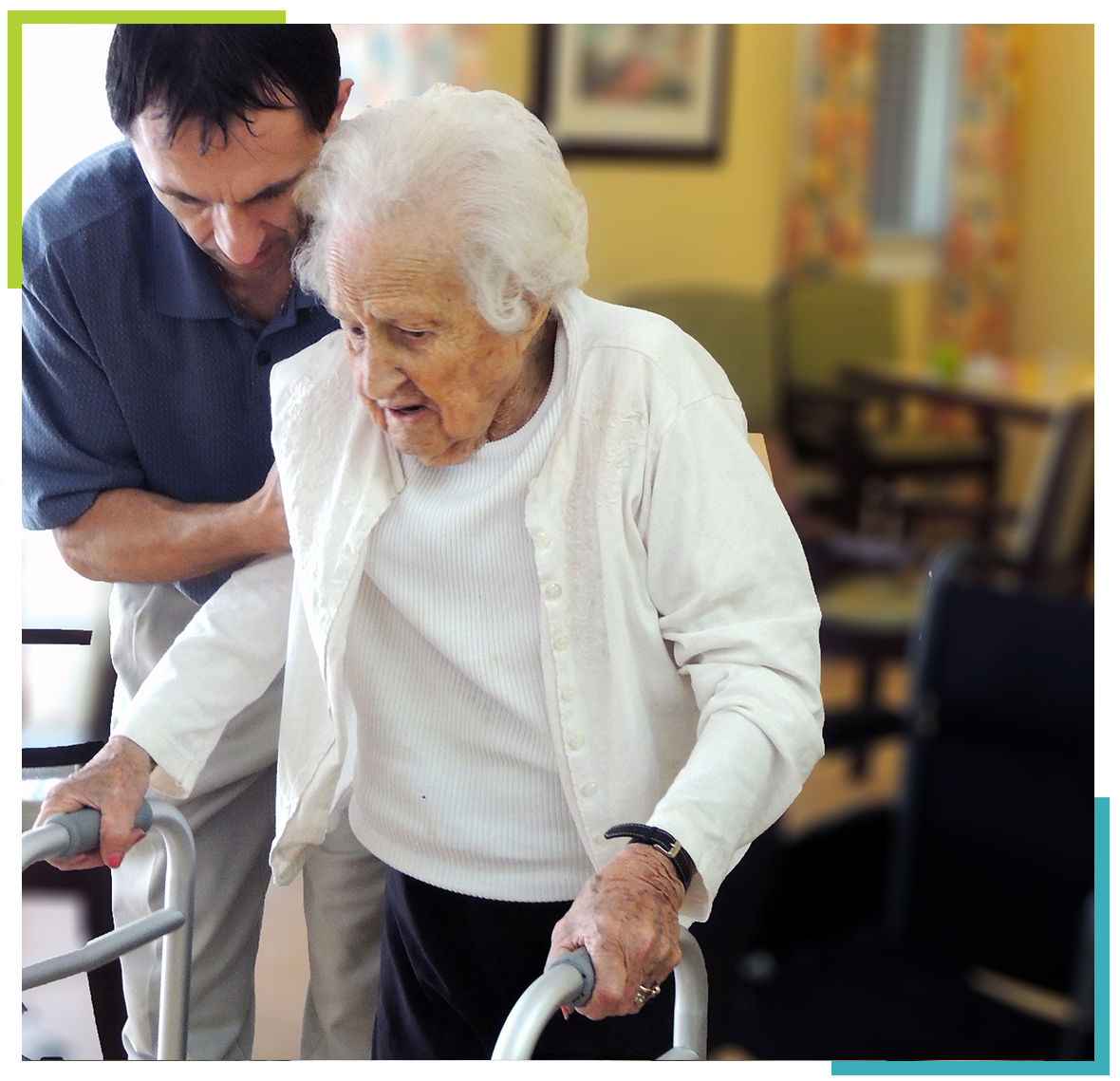If someone you love has been diagnosed with Alzheimer’s disease, you are probably concerned about many things. There are likely several thoughts swirling through your brain – from worry, to fear, to confusion. But you may also be wondering if Alzheimer’s is hereditary, and if your family’s genetic makeup makes Alzheimer’s more likely for you or others you care about.

The quick answer is that yes, genes seem to play a part in the development of Alzheimer’s disease.
Researchers have isolated multiple genes that may contribute to an individual’s risk of developing Alzheimer’s. However, it is vital to point out that this genetic connection in no way guarantees that you will develop Alzheimer’s disease, even if someone close to you has been diagnosed.
- Genetic Risk: According to the Alzheimer’s Association, APOE-e4 is the gene with the most significant influence regarding the risk of developing Alzheimer’s disease. APOE-e4 may play a role up to 65 percent of Alzheimer’s patients. An individual who inherits APOE-e4 from one or both parents has a greater risk of seeing the disease develop.
- Deterministic Genetics: Researchers have also located deterministic genes which directly relate to Alzheimer’s disease. These genes are known to be very rare, representing less than 1% of Alzheimer’s cases globally. That being said, these deterministic genes do result in an early-onset familial form of Alzheimer’s in several hundred known extended families.
Genetic Risk and Family History: People are at greater risk for Alzheimer’s if an immediate family member has developed the disease. The risk grows more prevelant as more family members are diagnosed with Alzheimer’s. The more known patients in the family, the greater the likelihood for other members of the family. However, high family incidence can also be the result of environmental factors, and not genetic at all. As you can see, there is still much that needs to be learned.
In Alzheimer’s cases that occur after the age of 65, hereditary factors play less of a role. According to the National Institute on Aging (NIA), later onset Alzheimer’s is more likely the result of environmental and lifestyle factors, possibly combined with some genetic predisposition.
Minimizing Your Risk
Some risk factors are out of your control, such as the aging process. However, many risk factors are within your control and may lessen the odds of developing Alzheimer’s:
- Alzheimer’s and Heart Health: A growing body of research shows a connection between heart disease / high blood pressure with an greater risk of developing Alzheimer’s disease. Additional studies are required to truly understand the relationship between the these health conditions. Can taking care of your heart affect your risk of developing Alzheimer’s? A connection does appear to exist, and maintaining a healthy body should be a priority.
- Head Trauma: Evidence is growing that suffering a severe head injury may indicate a greater risk of Alzheimer’s in the future. Less serious but recurrent head injuries, or a single event that results in a loss of consciousness could increase risk. (Read more about how to retrofit your home to prevent falls. )
- Stay Engaged and Enjoy Life: Remaining connected with family and friends and keeping the brain mentally stimulated are also associated with a lower risk of developing Alzheimer’s.
- Develop Good Habits: Senior citizens should strive for regular exercise, eat a healthy diet rich in fruits and vegetables, quit any tobacco products, and reduce alcohol consumption. A healthy mind often follows a healthy body.
If you or a loved one is looking for a professional, safe and compassionate place to live – whether assisted living or memory care – come tour the facilities at A Banyan Residence.







